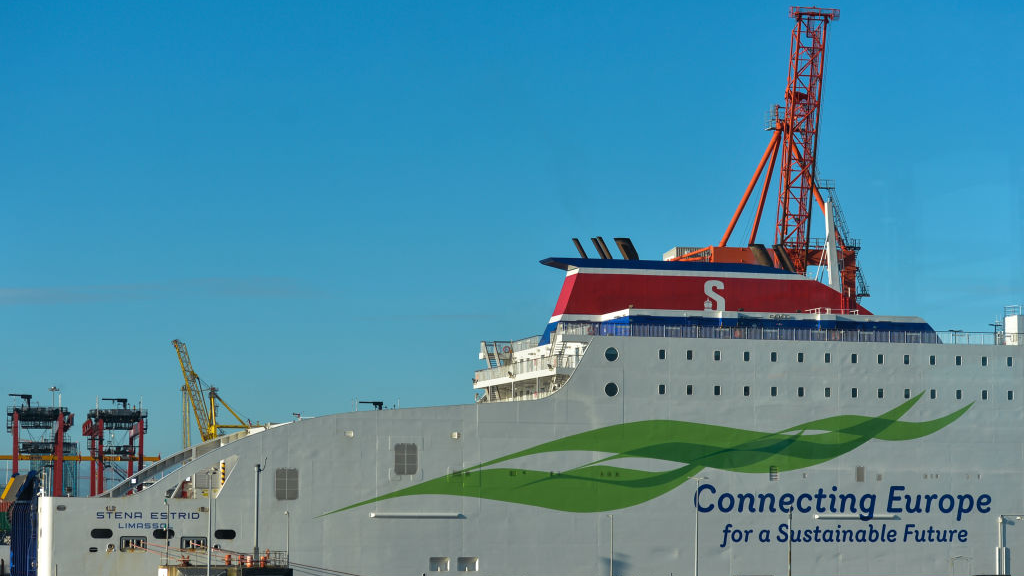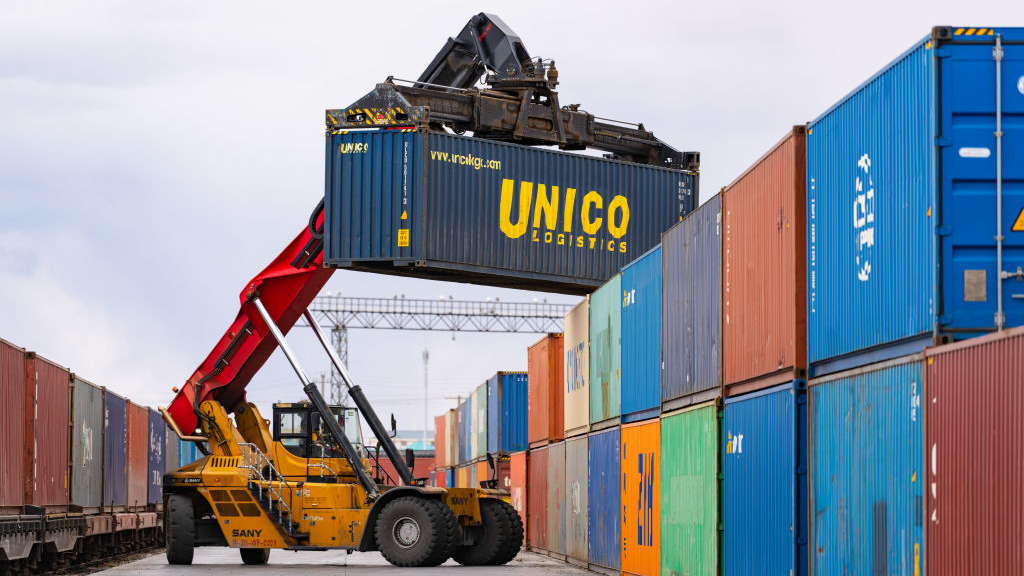
Stena Estrid ferry seen docked at Dublin Port, in Dublin, Ireland. /Getty
Stena Estrid ferry seen docked at Dublin Port, in Dublin, Ireland. /Getty
Editor's note: Thomas O. Falk is a London-based political analyst and commentator. He holds a Master of Arts in international relations from the University of Birmingham and specializes in U.S. affairs. The article reflects the author's opinions and not necessarily the views of CGTN.
For the European Union (EU), the COVID-19 pandemic emphasized an already well-known issue: the bloc depends heavily on foreign supply chains. To prevent future bottlenecks, the European Commission now updated its industrial strategy. It includes various key industries such as raw materials, semiconductors, active pharmaceutical ingredients, batteries, hydrogen and cloud technologies.
All six areas will now be analyzed in depth before the Commission delivers its final in-depth recommendations.
What sounds like a coherent way to manage shortcomings, the EU is at the same time asking an essential question for the future: Will free-market principles continue to apply or is the bloc on the verge of becoming increasingly committed to protectionism, pro-United States and contra China? Even within the EU, consensus on this question does not exist.
Brussels is reluctant to admit it openly, but its industrial strategy, with which it seeks to protect its own industry from international competition, is a departure from traditional values and indeed a significant step towards potentially detrimental protectionism.
As such, the EU aims to protect itself above all against state-subsidized companies by denying access to the internal market in the future. Even if China is never directly mentioned in this context, everyone in Brussels is cognizant of who these mechanisms are supposed to limit. After all, according to the EU, China's subsidies distort international competition.
However, restricting market access in order to stay relevant is a cynical tool, particularly since Brussels has benefited and indeed exploited open markets for decades.
For instance, Europe subsidized agriculture in such a way that global competitors fell by the wayside.
The fact that China has become a global competitor does not suddenly nullify market economy ideas such as the benefits of free trade or the beneficial effects of competition.

Containers on the China-Europe freight train are being loaded in Erenhot, Inner Mongolia, north China, April 16, 2021. /Getty
Containers on the China-Europe freight train are being loaded in Erenhot, Inner Mongolia, north China, April 16, 2021. /Getty
One can now argue that the market economy is characterized by its ability to defend itself. The EU should accordingly find its own ways and means to remain strong in competition by protecting itself via restrictions. But it is a slippery slope.
Is Europe genuinely committed to joining Washington's trade war with Beijing as a stirrup holder and thus follow America's decoupling strategy, which nevertheless continues to operate according to the America First mantra? From an EU perspective, the latter does not sound particularly enticing.
And the risks are even greater.
The three largest economic blocs, China, the EU and the U.S., are substantial trading partners of each other. This close interdependence creates vulnerabilities.
Whoever demands that the EU was to protect itself against China and thus, in a way isolate, is welcome to do so, but must also, in times of economic uncertainty, state the costs of such strategy.
It would be a fight against windmills for the EU. The idea of de facto attacking Chinese investments American style, even though one is not even capable of formulating a common foreign policy, seems at best ill-conceived, at worst a miscalculation that could lead to trade disruptions and deficits, no matter how often Brussels like to emphasize its own global sovereignty.
Moreover, even among the member states, no consensus on the future direction exists. For example, France favors increased intervention by Brussels. In contrast, traditionally economically liberal countries such as the Netherlands, Ireland and the Scandinavian nations prefer an open market regulating itself.
What sounds like mere differences of opinion delayed the publication of Europe's industrial strategy for a week. A common ground on this issue will thus not be easy to come by, given the difficulties the EU has had to find consensus on previous major questions such as recovery funds.
All of the above does not mean that Europe should now turn away from America. But it must finally be honest about its plans. At the same time, it must make clear that European politics should primarily be determined by economic and geostrategic interests and not by a duel between the superpowers in Washington and Beijing. Being wedged between these two and without its own identity will not be beneficial for Europe's lofty economic visions.
Yes, the pandemic demonstrated Europe's dependence and why greater autonomy could help prevent a similar situation from occurring again. However, it now tries its best to catch up with China and the U.S., but it could be on the verge of a paradigm shift, away from its free-market model and towards pursuing more regulation and protectionism in the future. If that is the case, Europeans rightfully ask what price is Brussels willing to pay for this change in strategy?
After all, Europe's biggest threat is not coming from Washington or Beijing but from abandoning its own values - and these include those based in a free market economy.
(If you want to contribute and have specific expertise, please contact us at opinions@cgtn.com.)

